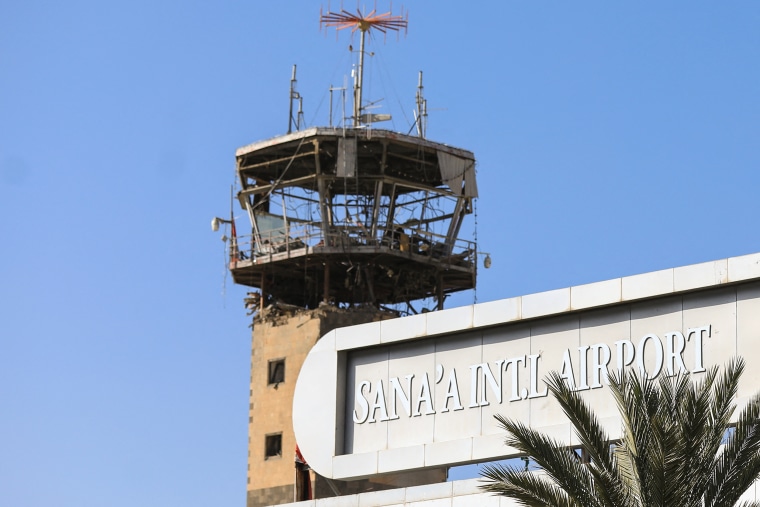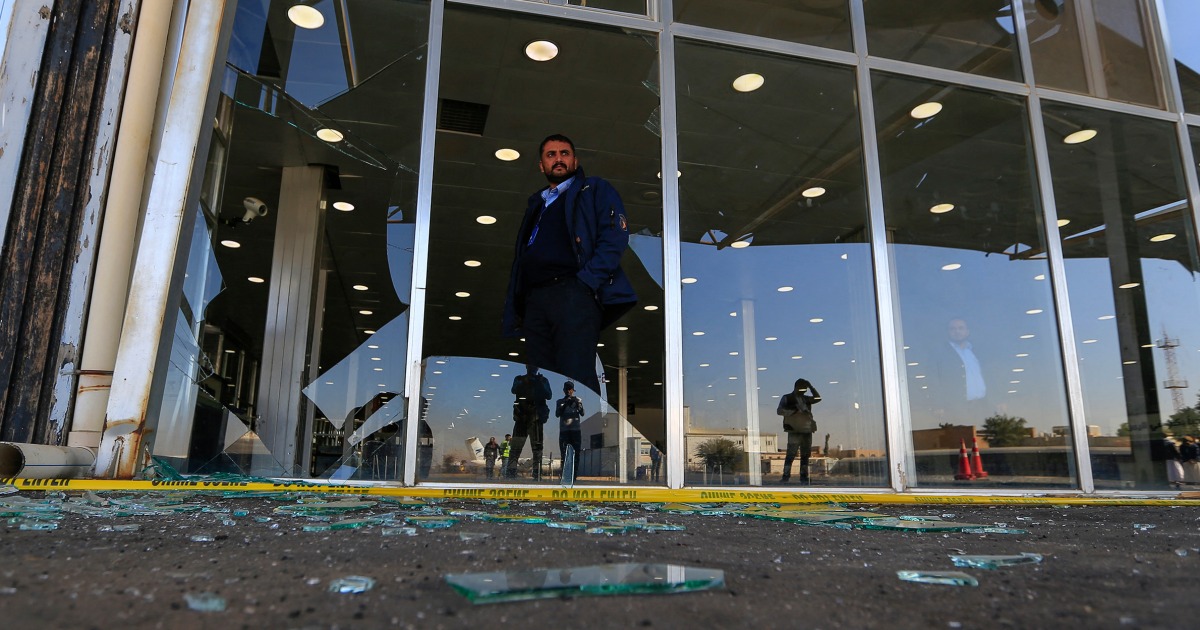World Health Organization Director-General Tedros Adhanom Ghebreyesus has revealed he was inside an airport in the capital of Yemen when Israeli forces launched a deadly strike on the facility.
On Friday, the Houthi-controlled SABA news agency reported that the rebels’ forces had targeted Israel’s Ben Gurion Airport in Tel Aviv. The Israel Defense Forces said they were not aware of the incident.
Israel attacked multiple targets in Yemen on Thursday, including the Sanaa International Airport, marking a major escalation in a mounting conflict with Iran-backed Houthi rebel forces there and as it ended the year locked in a multifront war across the Middle East.
Israeli forces launched the attack amid on the Sanaa airport amid a mounting exchange of fire with the Houthis, with the Israeli military intercepting a missile launched from Yemen a day before on Wednesday that injured multiple people injured. The Magen David Adom ambulance service said it had received reports of around nine people injured, according to Reuters.
Ghebreyesus said he and other WHO colleagues were preparing to board a flight just “meters” away from the area Israel hit.
“My UN and WHO colleagues are safe,” Ghebreyesus said in a statement published on X. He was in the country to negotiate the release of United Nations workers detained there and to assess Yemen’s humanitarian crisis.
“The air traffic control tower, the departure lounge — just a few meters from where we were — and the runway were damaged,” he said, adding that he and his team would have to wait for the the airport to be repaired before they could leave Yemen.
It was unclear whether they had been able to leave Sanaa as of early Friday morning.
Dr. Anees Alasbahi, spokesperson for the Houthis’ Ministry of Health in Sanaa, said in a statement that at least three people were killed and at least 13 others injured as a result of the strike. He added later that at least three other people were killed in another strike.
The World Food Programme said a WFP-contracted aircrew member was among those injured in the strike and was receiving medical treatment.
“Humanitarians are #NotATarget,” the organization said in a statement published on X on Thursday as it noted the critical work of humanitarian organizations operating in Yemen, including to prevent famine in a country gripped by an ongoing civil war since 2014.
The IDF did not immediately respond to a request for comment on the strike, including whether it was aware of the WHO delegation’s presence at the airport when it carried out the strike.
Israeli officials hailed the attack as a show of Israel’s ability to “reach and strike any threat” to Israelis, with the strike following a recent ramping up Houthi attacks on Israel.
“Over the years, we have developed capabilities to strike very far from Israel’s territory — precisely, powerfully, and repetitively,” IDF Chief of the General Staff Herzi Halevi said in a statement published online.

The Houthis — a rebel movement controlling much of Yemen and backed by Iran — have vowed to continue their attacks on Israel and on commercial shipping in the Red Sea until the war in Gaza ends.
The IDF reporting late Thursday that at least one missile launched from Yemen had been intercepted “before crossing into Israeli territory.”
United Nations chief Antonio Guterres condemned the violence in a statement published on X on Thursday, warning he was “deeply concerned about the risk of further escalation in the region.”
Noting that a high-level United Nations delegation had been inside the Sanaa airport at the time of the strike, he called for “all parties to cease military actions and exercise utmost restraint.”
“International law must be respected,” he said.


